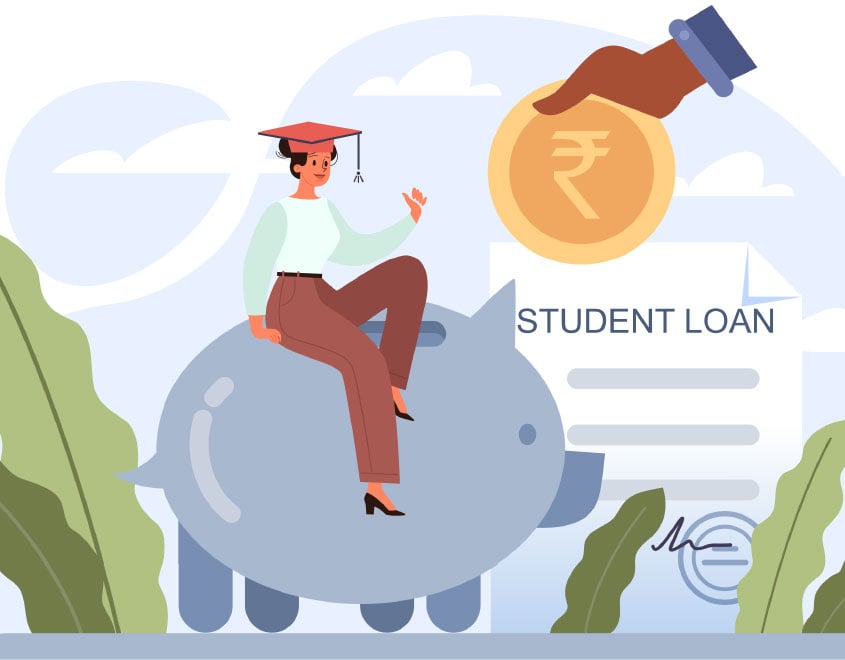As tuition costs continue to rise, college students are increasingly relying on loans to fund their education. While this financial support can provide much-needed relief, the process of choosing the right student loan can feel overwhelming. With so many options available—each with its own interest rates, terms, and benefits—how do you know which loan is the best fit for your needs?
Choosing the right student loan is one of the most important financial decisions you’ll make during your academic journey. Whether you’re heading to a four-year university or attending graduate school, the loan you take on can impact your financial future for years to come. A poorly chosen loan could lead to high debt and complicated repayment terms, while the right loan could offer flexible repayment options, lower interest rates, and potential forgiveness programs.
In this guide, we’ll walk you through the various types of student loans available, how to evaluate your financial situation, and the factors to consider when making your decision. By understanding the options and carefully considering your future financial needs, you can make an informed choice that sets you up for success both during and after your time in college.
1. Understand the Different Types of Student Loans
When considering student loans, it’s important to first understand the various types available. The two main categories of student loans are federal and private loans.
Federal Student Loans
Federal loans are offered by the U.S. government and are often the best option for college students. They come with several advantages:
- Lower interest rates compared to private loans.
- Flexible repayment options, including Income-Driven Repayment Plans and deferment or forbearance if you experience financial hardship.
- Loan forgiveness programs for those who go into public service jobs.
- Fixed interest rates, meaning your monthly payment won’t change over the life of the loan.
Federal loans are further broken down into:
- Direct Subsidized Loans: Available to undergraduate students with financial need. The government pays the interest while you’re in school.
- Direct Unsubsidized Loans: Available to undergraduate and graduate students regardless of financial need. You’re responsible for the interest, even while in school.
- Parent PLUS Loans: For parents to borrow on behalf of their dependent undergraduate student.
- Grad PLUS Loans: For graduate students to borrow for their education.
Private Student Loans
Private loans are offered by banks, credit unions, and other financial institutions. Unlike federal loans, they generally come with variable interest rates and less favorable repayment terms. Here are some key points to keep in mind:
- Interest rates are usually higher than federal loan rates.
- There is no guarantee of loan forgiveness, and many lenders don’t offer income-driven repayment plans.
- Some lenders may require a co-signer if you have little or no credit history.
- Repayment options may be less flexible than federal loans.
Private loans can be a good option if you have exhausted federal loan options or need additional funds to cover your education costs, but they should be used cautiously. Some lenders also offer private student loans for bad credit, providing opportunities for those who may have less-than-perfect credit histories. While these loans may come with higher interest rates, they can still serve as a helpful solution for accessing the funds you need to complete your education. By carefully comparing options and selecting a loan that aligns with your financial goals, you can manage your debt effectively and focus on your academic success.
2. Consider Your Financial Situation
Before deciding which student loan is best for you, take a good look at your finances. Here are some important factors to consider:
- Current financial need: If you need significant financial assistance, federal subsidized loans may be the best option, as the government covers your interest while you’re in school.
- Interest rates: Compare the interest rates of both federal and private loans. Federal loans offer fixed rates, but private loans may offer both fixed and variable rates. Fixed rates provide more stability, while variable rates could result in lower initial rates that may increase over time.
- Credit score: Private loans often require a credit check, and your interest rate may depend on your credit score. If you have a lower credit score, federal loans may be your best bet, as they don’t require a credit check.
3. Maximize Federal Loan Benefits
Before looking into private loans, ensure you’ve fully utilized all available federal loan options. Federal student loans come with a variety of benefits that can save you money in the long run:
- Subsidized loans: If you qualify for a subsidized loan, the government covers your interest while you’re in school.
- Repayment flexibility: Federal loans offer different repayment plans, including Income-Driven Repayment, which can be beneficial if you’re unsure about your future income.
- Loan forgiveness: Public service workers can qualify for Public Service Loan Forgiveness (PSLF), which wipes out your loan balance after 10 years of qualifying payments.
4. Look for a Low Interest Rate
When choosing a student loan, interest rates are one of the most important factors to consider. Lower interest rates mean less money spent over time. Federal loans offer some of the lowest interest rates available, and they are fixed for the life of the loan.
For private loans, compare offers from different lenders. Interest rates can vary significantly, especially if you have a co-signer or a strong credit history. Shop around and compare both fixed and variable rates to determine which one is right for you. Keep in mind that while variable rates may start lower, they can increase over time.
5. Check for Additional Fees and Penalties
Some loans may come with hidden fees that could affect your overall loan costs. Common fees to look out for include:
- Origination fees: These are fees charged by lenders to process the loan. Federal loans don’t have origination fees, but some private loans do.
- Late fees: Be sure to understand what the penalties are for missing a payment. Some loans charge high fees for late payments.
- Prepayment penalties: Some private loans impose fees if you pay off your loan early. Federal loans, on the other hand, do not charge prepayment penalties.
6. Loan Repayment Terms
Consider the repayment options available with each loan. Federal loans tend to offer more flexible repayment options, such as Income-Driven Repayment (IDR) plans and Deferment/Forbearance options. These plans can be a lifesaver if you encounter financial difficulties after graduation.
Private loans may not offer as much flexibility, and many don’t have income-driven repayment options. Be sure to fully understand the repayment terms before committing to a loan, and look for a loan that fits your expected post-graduation income.
7. Consider Loan Forgiveness and Refinancing Options
After you graduate, loan forgiveness programs could be an essential option to consider, especially if you plan to work in public service. Federal loans offer Public Service Loan Forgiveness after 10 years of qualifying payments.
If you’re considering private loans, refinancing might be a possibility down the road, but keep in mind that refinancing federal loans can make you lose out on certain federal loan benefits, such as income-driven repayment plans and forgiveness programs.
Choosing the right student loan is more than just a financial decision; it’s about setting yourself up for a successful future. With careful consideration of your financial situation, loan terms, and available options, you can make an informed decision that suits your needs.
Start by maximizing federal loan opportunities, as they come with a host of benefits that private loans can’t offer, including lower interest rates and forgiveness options. If you need additional funding, private loans can still be a viable option, but be sure to shop around, compare interest rates, and fully understand the repayment terms. The key to managing your student loan debt is to make a choice that aligns with your financial goals, both during school and in the years to come.
In the end, securing the right student loan is an important part of your college journey—and one that can pave the way for financial stability long after graduation. Take your time, explore your options, and choose wisely so that you can focus on what matters most: your education and future success.


